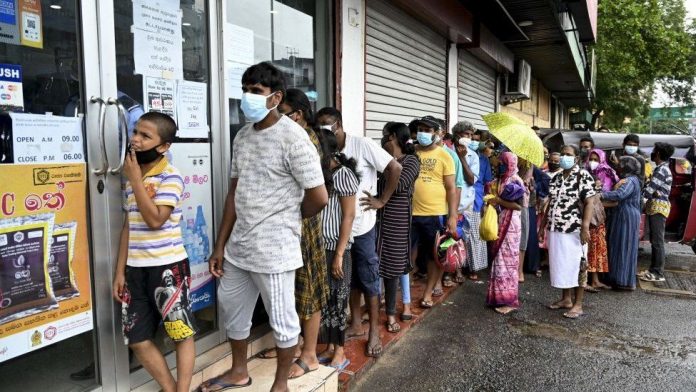Sri Lanka’s cooperative system is to be streamlined eliminating mismanagement, fraud, corruption and waste with a view of making maximum use out of it in the government service delivery, food supply chain and food security, official sources disclosed.
At a time of economic hardships and essential commodity scarcity, multipurpose cooperative societies and shops could play a vital role in distributing food rations during economic distress or pandemic periods.
The co-operative system consists of Multipurpose Co-operative Societies, Thrift and Credit Co-operative Societies (SANASA), Co-operative Rural Banks and various other types of service and Agricultural Co-operatives numbering close to 10,000, Finance Ministry data showed.
This system had been affected badly following the devolution of its subjects under the 13th Amendment to the Constitution.
Therefore the Government is considering an amendment to the regulation of co-operatives currently devolved into provinces which are causing lot of disorders including irregularities especially in the management of Co-operative Rural Banks.
The Provincial Department of Cooperatives, the state authority tasked with regulation of functions of cooperative societies, is acting in a very lethargic manner with regard to corruption and fraud in several such banks countrywide, several members of cooperative societies alleged.
There are several issues that hinder effective intervention and regulation by the Department of Cooperatives; (i) lack of staff to carry out comprehensive audits of cooperative societies, (ii) the audit staff is technically not competent enough to query non-traditional projects such as big constructions of modern nature initiated by coops, (iii) bribery and corruption and, (iv) political interference.
These are common to all cooperative institutions including banking societies in the country functioning at provincial level as well as national level, they said.The involvement of ruling party politicians in the rural banking system has now become the order of the day.
Details of such involvement of a parliamentarian in the setting up of a Capital Co-operative Bank network was revealed in parliament recently.It has been revealed that this bank network consisting of 171 branches countrywide is engaged in obtaining deposits of the public in an irregular manner.
However the MP accused of maintaining the bank network, told parliament that he has launched a Capital Co-operative Bank system for the benefit of youth in nine districts with the approval of the Central Bank.It is being successfully implemented during the past 20 years and up to now; he confirmed adding that he is not holding any post in the cooperative banking society.
The government has to introduce a new law to prohibit the involvement of politicians in the cooperative rural banking system when the plan to streamline the cooperative system is set in motion, a senior official said.
